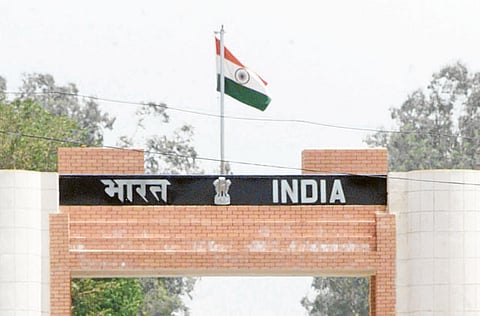New visa rules thrill cross-border couples
For years, Indian-Pakistani couples in the UAE have been unable to travel to each other's countries

Dubai: India and Pakistan are to finalise a landmark agreement on Thursday to ease visa rules for people from the two countries. Expected to come into force in August, the new rules will bene-fit hundreds of cross-border couples in the UAE.
Indian media reports said the breakthrough agreement, being signed in Islamabad, will allow India and Pakistan to issue group tourist visas for citizens and multiple-entry visas for families of individuals with spouses from the other country. One-year visas will be issued to businessmen while visas on arrival will be given to senior citizens and children under 12 at Wagah-Attari.
They said the group tourist visas will be valid for 30 days and the visas on arrival for 45 days. The multiple-entry visas for families will be valid for two years.
Group tourist visas will be given to groups of 10-50 persons to undertake tours arranged by approved travel agents who will be responsible for police-related formalities. School and college students will also be able to visit each other's countries in this category.
In the case of multiple entry visas for families of those married to individuals from the other country, one person can report to the police for every family. Those getting visas on arrival need not report to the police.
Media reports said businessmen will be entitled to one-year visas under two categories. Depending on their turnover, the visas would be multiple-entry or restricted to four visits.
The number of places they can visit will vary accordingly from 10 to 4. They can send a representative to report to the police.
The new rules have been widely welcomed by cross-border couples in the UAE.
"This is great news," said Zubair Farooqui, a Dubai-based Indian who is married to a Pakistani. Forget their families, even they haven't visited each other's countries in their five years of marriage.
"The last time I applied for a visa to Pakistan was when I wanted to attend my brother-in-law's marriage. But I couldn't make it as I got the visa two weeks after the event," he said.
But the days of long waits, undue formalities and uncertainties could soon be over. The new rules are expected to come into force in August.
"I've always wanted to go to India but I've dreaded it because of the formalities," said Floyd Barrell, an event manager from Karachi who works in Dubai.
The 33-year-old said his wife is from Mangalore in the south of India and hasn't been to his native place either.
"We look forward to the rules being relaxed so that we can travel more easily," he said.
Another Dubai-based Pakistani who is married to an Indian, who did not want to be named, said: "We live in 2012 when communication has opened up and the world has become a smaller place. People in India and Pakistan are the same, it's just the politics that separates them. I am so happy that people-to-people ties are now getting their due and we will be able move freely and in a friendly manner across the border. Families can meet and children can spend time with their grandparents."
Sign up for the Daily Briefing
Get the latest news and updates straight to your inbox


